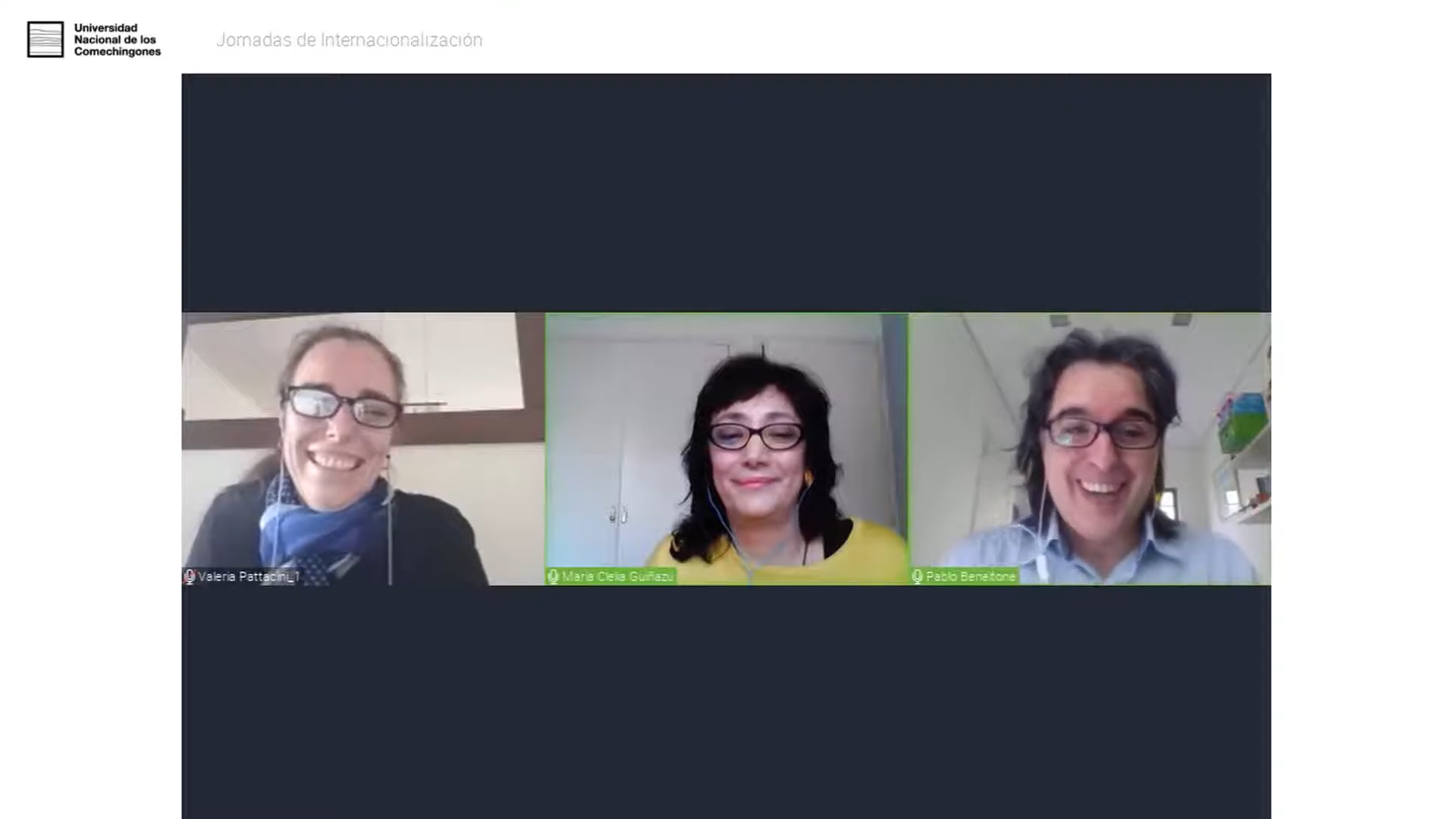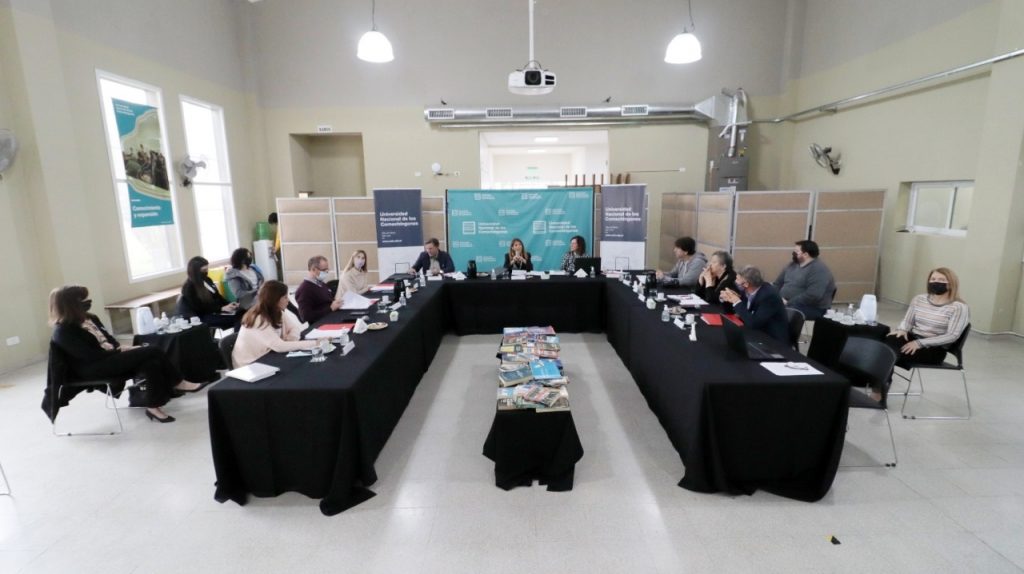The National University of the Comechingones (Universidad Nacional de Los Comechingones) understands internationalization as a “key tool to transform higher education, strengthen the communities and promote quality and ownership of teaching, research and outreach” (CRES 2018).
The Secretariat of Research, International and Graduate Studies is responsible for carrying out the lines of work defined as part of the Educative Project with the challenge of including this dimension in an integral, comprehensive, and transversal way in the development policy of the University, involving its different sectors.
As part of its general objectives, it aims to:
- Promote and construct the implementation of programs aimed at driving internationalization from a comprehensive perspective.
- Contribute to cooperative relations among higher education institutions and organisms, either national or international, based on internal management of institutional quality, to promote the different functions of the University: teaching, research, and extension.
- Make the academic community aware of the importance of integrating the educational, research, and extension objectives with a critical, international, and multicultural perspective.
As part of its specific objectives, it aims to:
- Share with other universities in Argentina and abroad good practices regarding internationalization strategies for higher education.
- Include the international dimension to educational, research, development, and innovation processes as well as institutional evaluation and program accreditation.
- Contribute to the training of students, teachers, and authorities through mobility (including virtual mobility) grant programs.
- Integrate the international dimension in teaching and research through the internationalization of the curriculum.
- Promote the participation of the University in national and foreign organisms related to the internationalization of higher education.
- Register and publish the initiatives driven by the University in terms of planning and implementing internationalization actions effectively and efficiently.
PILA Program
The UNLC is subscribed to Latin American Academic Exchange Program (Programa de Intercambio Latinoamericano – PILA) which is born from an agreement between the National Interuniversity Council (Consejo Interuniversitario Nacional – CIN), Argentina, the Colombian Association of Universities (Asociación Colombiana de Universidades – ASCUN), and the National Association of Universities and Higher Education Institutions of Mexico (Asociación Nacional de Universidades e Instituciones de Educación Superior – ANUIES).
The objectives of the Program are to promote the exchange of undergraduate and graduate students, as well as teachers, researchers, and managers of the universities and institutions associated with the Program to reward their academic, professional and integral performance as well as to favour the internationalization of higher education and strengthen the cooperation bounds between Argentina, Colombia, and Mexico.
Institucional registers
The UNLC is registered and has the Participant Identification Code (PIC) which is necessary to communicate and interact with the European Commission and its agencies.
To further information: siip@unlc.edu.ar
Jornadas de Internacionalización de la Educación Superior
Como parte de su programa de sensibilización de la comunidad UNLC y de otras universidades del sistema de UUNN respecto de la relevancia de la internacionalización en la educación superior, así como sobre sus actores, agencias y oportunidades, se realizaron el 24 de septiembre de 2020, las Jornadas de Internacionalización de la Educación Superior. La actividad se propuso desde un enfoque situado en el “antes” y el “después” del impacto provocado por la pandemia COVID 19 y en los debates existentes acerca de la transformación, quizás paradigmática, de los procesos de internacionalización tal como se desarrollaban hasta ese momento.
Asimismo, se difundió entre la comunidad universitaria el conocimiento sobre, y la valoración de, las áreas/oficinas de internacionalización de las universidades.
Las jornadas contaron con amplia participación del sistema universitario y la disertación de referentes en la materia.
The Secretariat of Research, International and Graduate Studies has as its mission to encourage the production of knowledge of diverse nature and structure, in a collective way and with social propriety, which promotes environmental care, biodiversity, and cultural heritage in all their expressions, looking after the rights of people and that it be a public good for the sustainable and innovative development of the productive and social sector of the local, national and international environment.
As part of its general objectives, it pursues:
- Strengthen the capacity in research and technological relations of the University
- Enhance the capacity of people and the resources needed for the development of actions in the areas of production, dissemination and transfer of innovative knowledge to add value to productive chains and reduce the technological breach.
- Promote a participatory model of joint production of knowledge between the University and territorial productive and social actors.
- Reinforce work in regional, national and international networks.
Within the framework of its specific objectives, it proposes:
- Collect and systematise the technological problems and needs of local and regional environment
- Update the regional productive maps from an integral perspective, considering the context in all their socioeconomic and technological features.
- Promote initiatives to coordinate joint strategies with the different territorial and internal actors of the University
- Boost the joint work of the Secretariat and the degree programmes of UNLC to plan the production of innovative research – disciplinary, inter, and transdisciplinary – linked to territorial demands.
- Underpin research into innovative products, materials or processes for their insertion in the socio-productive sector of the region.
- Enlarge the capacity and resources to provide technological assistance and specialised equipment in the development areas of the University.
- Design strategies for knowledge transfer.
- Promote the dissemination of the results of the knowledge produced.
- Observe, in a systematic way, the impact and the relevant results of the knowledge transfer on the productive and social development of the local and regional environment, and in the University area itself, as well.











